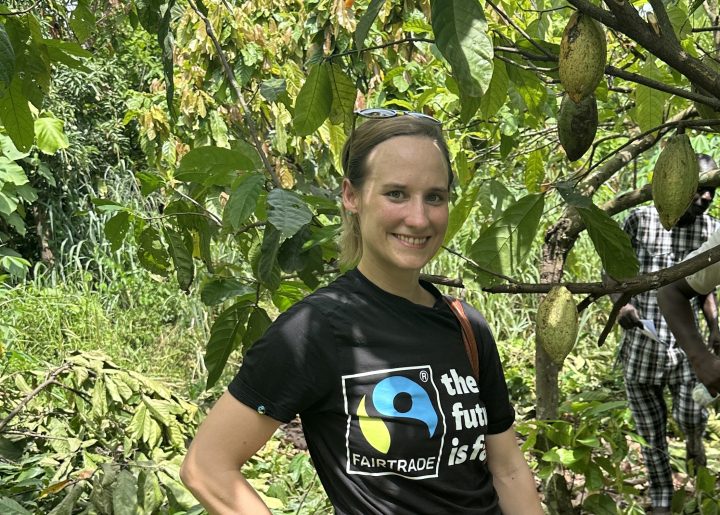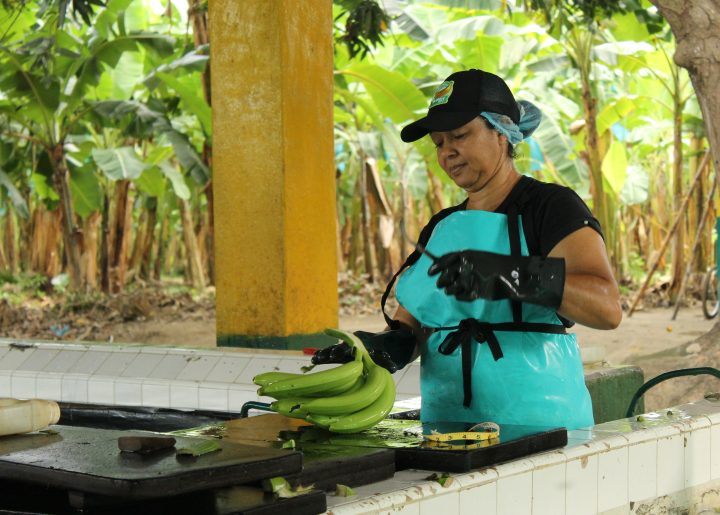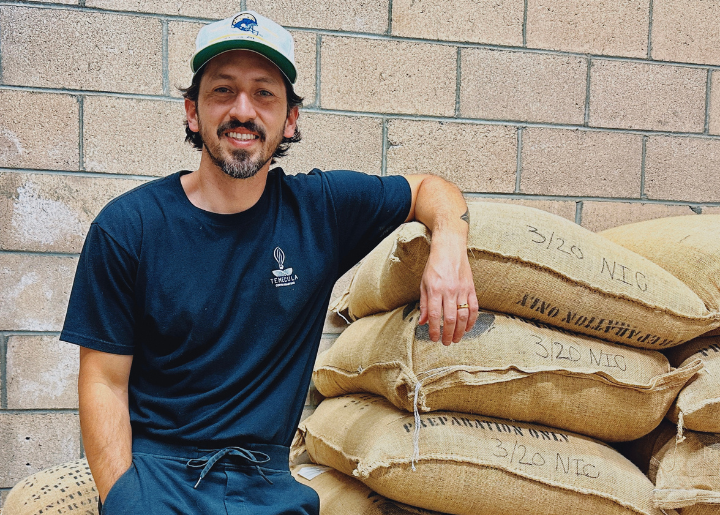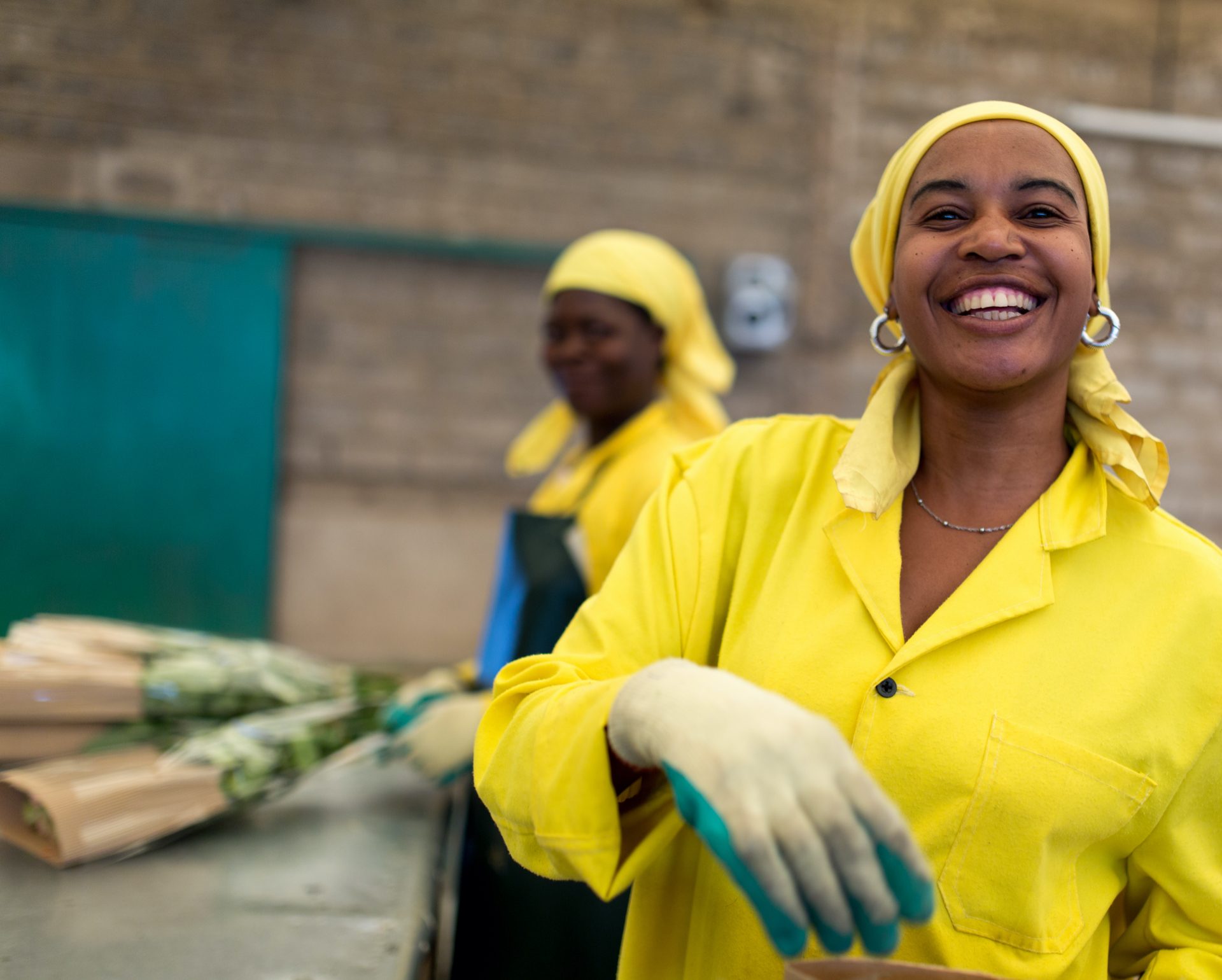Vanilla farmers in Madagascar leading against child labor
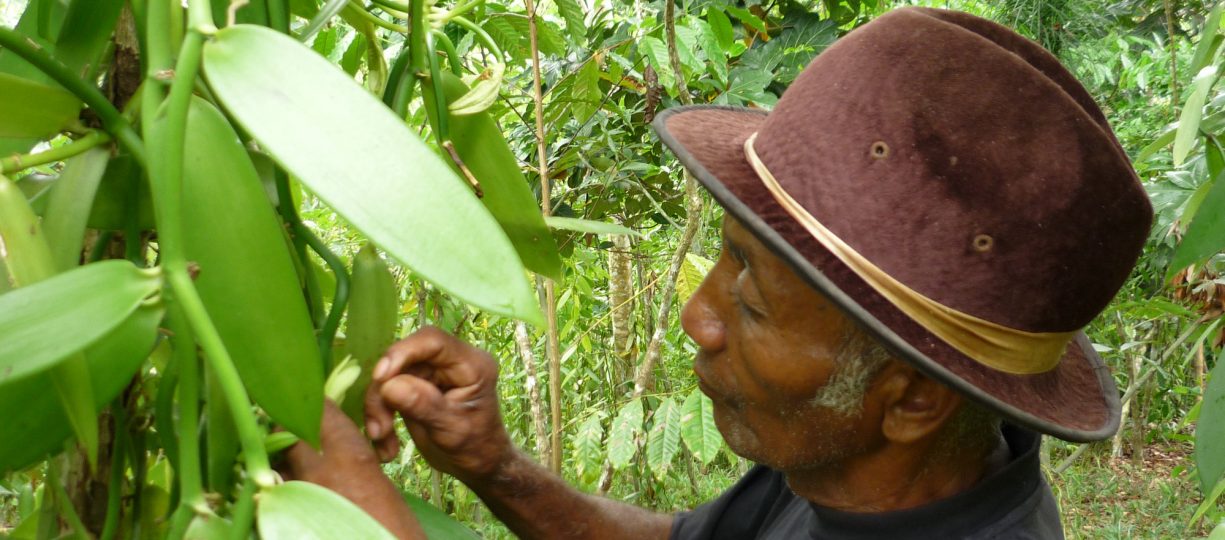
Vanilla is a labor-intensive crop that requires hand pollination outside of its natural habitat in Central America. It’s also one of the world’s most expensive spices, but that premium price doesn’t translate to decent income for vanilla farmers, which puts many families at risk. In working to improve livelihoods, Fairtrade farmers in Madagascar are confronting child labor and taking their efforts to the national level.
These farmers are at the forefront fighting child labor and doing their best to provide decent work, despite hardship and struggle brought on by natural disasters or not getting a fair share. Their work in this area of human rights is proving influential across the country.
There are currently 12 Fairtrade certified farmers’ organizations representing 6,780 vanilla farmers across Madagascar. The country is the world’s leading producer with just 80,000 farmers supplying roughly 80% of the world’s vanilla. Vanilla from Madagascar is also on the US Department of Labor’s list of goods produced with child labor.
Ordinarily when Fairtrade works with a community to address child labor, there is the need to enable people to understand what child labor is and why child rights matter. But in Madagascar, it was the farmers who identified the problem and approached Fairtrade.
“Way back in 2010, when we were starting to develop our rights-based approach in applying the Fairtrade Standards to child labor prevention and increased child protection, we were approached by a small group of vanilla producers in Madagascar,” said Anita Sheth, Senior Advisor, Social Compliance and Development (Informal Sectors) at Fairtrade International. “The farmers were asking us to not see them simply as a potential risk for child labor, but as key architects in designing solutions.
“At the time, we were focused on cocoa, coffee, cotton and sugar, where the most significant risks have been identified. But these farmers were demanding that we include them. Many asked, ‘why the focus on vanilla?’ and these producers responded, ‘why not?’ Their enthusiasm and determination was something I had personally not seen before.”
Advocating for Child Protection
In 2010, Fairtrade farmers in Madagascar were among those included in a special EU export stabilization fund and IFAD program to improve rural income. Some of the groups were invited to become formal members of Madagascar’s National Platform for Vanilla Sector, which included other non-Fairtrade producers, government and private sectors.
When the ILO released a study in 2011 on child labor in the Sava region where 3,999 Fairtrade vanilla farmers live and work, Fairtrade brought a delegate from the Ministry of Child Protection to provide trainings to the farmers of REFAMADA, a network of Fairtrade producer groups. The farmers immediately applied what they learned in their own communities.
Premiums earned from Fairtrade sales were invested in creating a Children’s Day event to build awareness of children’s rights; child protection services; advocacy to increase child protection; and access to quality education. These actions convinced local authorities, the Ministry of Population and UNICEF to partner with REFAMADA and include them in the National Network for Child Protection.
Going beyond minimum requirements
Given the strong results, Fairtrade International and Fairtrade Africa supported three other farmers’ organizations to pilot Fairtrade’s Youth Inclusive Community Based Monitoring and Remediation System on Child Labor (YICBMR), a three-part program developed to identify and respond to child labor on a continuous and improving basis.
Of the three groups, Association Soarano Vanille expressed interest in continuing the project with members of the General Assembly expressing their commitment to increase the well-being of children and youth in and around their organization. The Assembly voted to allocate Fairtrade Premiums to complete the implementation of the YICBMR pilot.
The Association trained 34 board members – 8 men and 26 women – on the YICBMR process, and set up a Child Labor Committee and Women’s Committee. Thanks to the Association’s strong connections with the National Network of Child Protection, a technician from the Ministry of Population offered training for community members to expand their pilot.
In March 2016, 36 participants attended the training, including representatives from each of the 15 villages where Association Soarano Vanille members are based. These trainees were charged with sharing what they learned with members of their communities.
WE HAVE LEARNED A LOT ABOUT PROTECTING CHILDREN FOR THE BENEFITS OF OUR FAMILIES AND THAT OF THE FARMER COMMUNITY. WE ARE READY TO MOVE FORWARD.
Training Participant
The Association mobilized their members, women and youth within their communities, including the Mayor, representatives from the health authority, and religious leaders, and hosted a campaign to convince the people not to shy away from discussing child labor in the open.
“We will lead the effort,” one Soarano board member said. “We will talk openly and loudly about the issues faced by our children and young people.”
The participative, community-based approach of Fairtrade’s YICBMR system, enabled villagers and their children to take part in the risk assessment of child labor within the community.
Challenges and Findings
One of the key parts of the YICBMR system is a household survey that helps community members understand how prevalent child labor is in a community. Getting accurate findings can be challenging at times since there is often a stigma attached to child labor.
“At the beginning, it was not easy to convince some of the local authorities to approve the launching of the survey,” said Talava Ruffin, the Association Soarano’s Child Labor Committee point person. “Some would think that there is no child labor in the vanilla production, and some would even say that it is a waste of time to conduct such a survey, but when we disclosed the results of the survey, they all agreed that the existence of the project was very important for the community.”
A total eight people – three adults and five young people between 17 to 22 years old – conducted household surveys with 320 adults (179 men and 141 women) and 1601 children (688 boys and 913 girls).
One of the mothers interviewed noted, “at first, I was not comfortable talking about the realities of my family, but when the person taking the survey explained the aims of the interview, I felt its importance.”
In October 2016, survey results were presented to the General Assembly of the Association. According to the survey, more than 50 children between 6 to 8 years old were unable to attend school because of household chores, including babysitting their younger siblings. The association members agreed to fund and implement prevention projects to mitigate child labor.
A day care providing care for 50 children from 47 households was established using Fairtrade Premium funds and two teachers were hired to support the at-risk children identified in the survey. In addition to these projects, Soarano is also running a sewing project for girls age 14 to 17, with sewing machines donated by the Ministry of Population and carpentry training with carpentry tools donated by the ILO. Local education authorities appreciated Soarano’s effort and are asking the association to open a primary school so that children can continue their schooling.
“I am very satisfied that Soarano has cared for the education of children below five years age,” said a local teacher. “My hope is that my child will not experience the same plight that I have had with an early pregnancy and being a single young mother.”
Because the topic was such a difficult one for the community to face and access to support was so scarce, the farmers of Soarano and REFAMADA initially had challenges locating partners, but now organizations are seeking them out because of their good work.
Recently, the US Department of Labor (USDOL) provided $4 million through the ILO to improve sustainability in the vanilla sector in Madagascar, bringing together leadership from the international vanilla industry and the Malagasy vanilla sector through the National Vanilla Platform. The four-year project will focus on improving livelihoods of vanilla-producing families, enabling decent work, and fighting child labor in the SAVA region where Soarano and other Fairtrade vanilla farmers are based.
Jean-Philippe Zanavelo, field staff for Fairtrade Africa, noted how far Fairtrade vanilla producers had come and how much this USDOL project will enable them to improve working and living conditions in and around vanilla producing farmer organizations.
“I have witnessed that we can really count on rural producers by enabling them to bring their own solutions to social issues like child labor within the community. I believe that this type of achievement will be sustainable with the commitment of all stakeholders and long-term trading relationships between Fairtrade producers, traders and companies,” Zanavelo said.
Anita Sheth added: “This new initiative in the Malagasy vanilla sector could provide another example of how farmers are not only determined to lead the fight against child labor, but also to be key actors developing their own solutions to remediate child labor and enabling an environment that is safer for children and families in the long-term. If we want sustainable and measurable results globally, we need to rethink the role of farmers and their communities around child labor.”
Child labor is an important issue where Fairtrade farmers are being engaged in creating solutions. Three Fairtrade certified sugar cane associations in Belize are currently involved in an EU project and one of these groups also met with USDOL CLEAR II partners in Belize on a project to eradicate child labor in the sugar cane sector. Learn more about Fairtrade’s work here.
Topics
We’re in this together
Fairtrade America partners with brands on the journey to certification and beyond. We can help with everything from finding a certified supply chain to marketing your newly certified product.
Get in Touch
